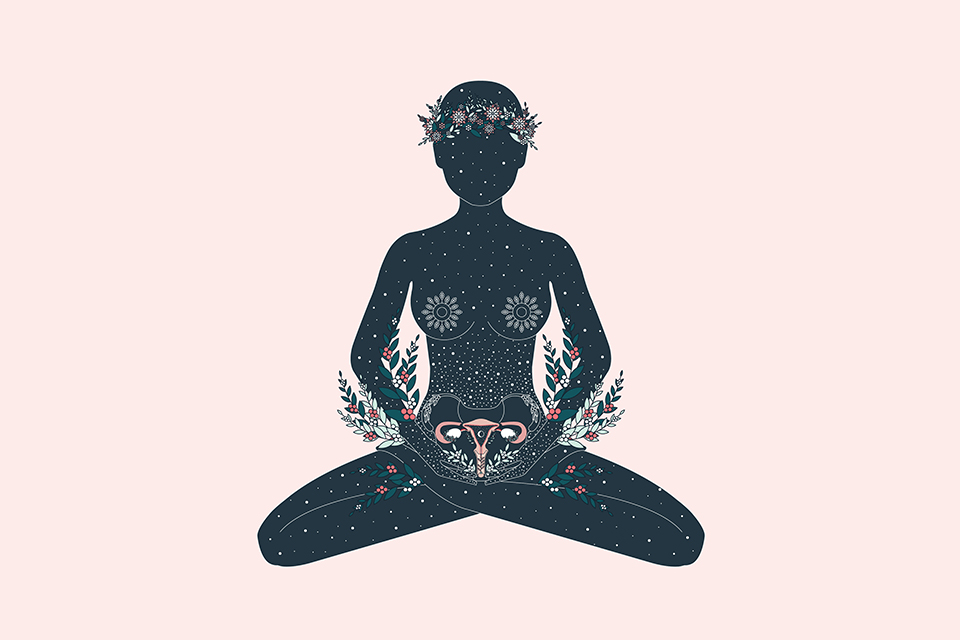How Millennial Women Can Take Charge of Their Reproductive Health
No matter your age, the more you know about your body, the more empowered you will be.
As an integrative reproductive expert, I meet a lot of women who are not fully informed about their bodies. Most of us begin to learn about our reproductive capacities when we get our periods, and if we’re sexually active, we may learn more details about our hormonal cycles by going on the pill or using some other form of birth control. But for most of us, unless we make a conscious decision to try and become pregnant, there is a lot we don’t know.
I have worked in the area of infertility for over 17 years, and I see women from preconception to very advanced stages of infertility. No matter your age, the more you know about your body, the more empowered you will be to navigate the potential challenges of trying to become pregnant. I recommend you become more aware about your body and your reproductive cycle as early as possible, to give yourself maximum flexibility with making important choices later on.
See Your Doctor
Of course, everyone should receive regular medical care. But when it comes to reproductive health, we often fall short of regular monitoring as we would normally do for things like glucose or cholesterol levels. Simple tests like AMH (Anti-Müllerian Hormone), FSH (follicle stimulating hormone), LH (luteinizing hormone), and Progesterone levels can also give you a lot of information about your fertility. These tests are covered by most insurance. In particular, your AMH level reflects the amount of eggs maturing in your ovaries prior to ovulation and is a strong indicator of your ability to produce quality eggs. Having this information at a younger age may influence decisions as to whether or not to wait to try and get pregnant, or even to freeze eggs for later use. The most important thing here is to work from an informed place, so you can give yourself the most freedom around your fertility choices as possible.
The most important thing here is to work from an informed place, so you can give yourself the most freedom around your fertility choices as possible.
Take Charge of Your Fertility
The more you get to know your body, the more informed you’ll be when making decisions around getting pregnant. The book, “Taking Charge of Your Fertility,” by Toni Weschler, MPH was my body literacy bible in my 20’s. Reading it was the first step I took to empowering myself and learning about my cycles. This book is extremely helpful if you want to understand the details of your reproductive system and body rhythms, either to prevent or achieve pregnancy. It’s also an inspiring primer for maintaining greater control of your sexual and gynecological health. I recommend it as a must read for all women who want to understand the amazing capabilities of their bodies.
Start Preparing for Pregnancy Early
If you think you may want to get pregnant someday, it’s never too early to start preparing your body. We prepare for tests and plan weddings well in advance — why shouldn’t we also make long-term preparations for having children? The good news is, even if you decide never to get pregnant, the practices I’m recommending will contribute to your overall health and wellbeing.
Smoking and recreational drugs can negatively impact the quality of your eggs. Cutting down on these and other unhealthy habits such as excessive drinking can be most helpful. Developing good eating habits in advance of pregnancy is also important. A diet rich in organic, whole foods and low on sugar, gluten, dairy, soy, alcohol and caffeine is best. The sooner you can acclimate to a healthy diet, the less of a transition it will be to eating for the purpose of nourishing your unborn child. And lastly, it’s important to balance your body weight. We all know about the potential health hazards of being too overweight, but the truth is, there’s also such a thing as being too thin, particularly when it comes to maintaining a healthy reproductive cycle. If you see pregnancy in your future, ask your doctor about developing a balanced relationship between weight, diet and exercise, so you can maintain a strong, healthy body for the work ahead.
Become the Champion of Your Own Reproductive Health
It’s true that knowledge is power, and this is especially true in the case of women’s reproductive health. Fortunately, we live in a time when we have access to all the information we need to be able to make the most informed choices. Understanding the specifics of your own reproductive cycle and capabilities will enable you to best utilize today’s available technologies and resources, and if you obtain the right data via readily available medical testing, you’ll be prepared to develop a plan that is well suited to your own particular needs. Moreover, being in tune with your overall state of health is a great foundation for moving into motherhood, when you’ll also be responsible for the health of another.
Illustration by Duvet Days

A leading integrative fertility expert, Angela Le is founder of Fifth Avenue Fertility Wellness in New York City, and one of the first acupuncturists in the country to focus only on fertility. Since 2001, her practice has supported, treated and empowered thousands of patients. As a leader in the women’s health movement, Angela is committed to embracing infertility as an opportunity for transformation and a catalyst for deeper healing and awakening.







